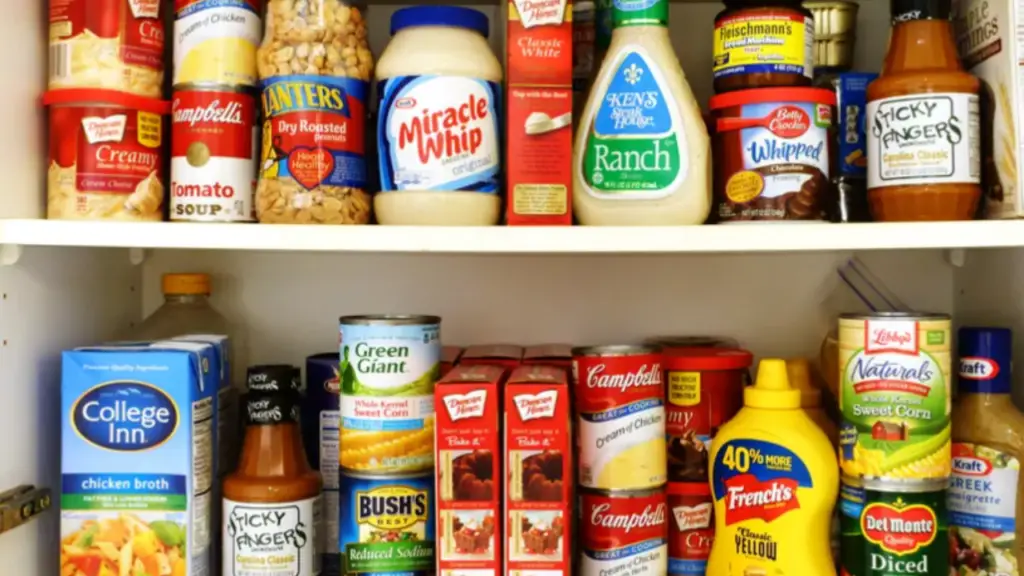
Donating “expired” food is an option. But, because not everyone is aware of it, we had to tell it. At food donation booths and food banks around the United States, food donations that have passed their “best before” dates are welcomed and appreciative.
Every year, a considerable portion of the food produced in the United States for human consumption goes to waste. Food waste estimates were over 40% when we started in 2011, but we’d like to assume that people are making a dent in that figure, so we’re willing to accept estimations as low as 25%-30%. However, even if they’ve been reduced, it’s still too high a price point.
Yes, it is ok to donate food that has expired. You can donate expired food to your local food bank that you longer want. Food donations that have passed the “best before” dates.
Here you can buy expired food online
From the resources used in food production, like water and energy, to distribution channels and ultimately the consumers. Ending with the methane gas created by that same food decomposing in landfills, the complete picture of wasted food is complex.
This is known as a greenhouse gas. Compared to carbon dioxide, methane has a greater environmental impact. This is why individuals contribute to getting surplus meals into the hands of people who desperately need them. In addition, donating out-of-date items to food banks, whether on a local or big scale, helps reduce the enormous issue of food waste that the world is facing.
Giving to a food bank is a positive thing to do.
The grocery store often provides bins to buy food and then places it in the container to a food bank, which is particularly convenient during the Christmas shopping season. This is wonderful, but food banks need contributions throughout the year to make a difference in the enormous food waste issue.
As much as consuming and appreciating “expired” foods is recognized, some individuals simply cannot or will not eat certain items. Therefore, instead of throwing away “expired” items from your pantry, donate them to a food bank instead of throwing them away.
There are far more individuals who are perfectly happy to consume expired foods than those who do not want to eat expired items. So please, instead of throwing expired food products in the garbage, check for the nearest food bank! They will happily take and redistribute any food products that have been out of date for you.
Food banks will accept foods, whether they are expired or not, and determine their best use. In this case, food banks do not accept moldy or rotten foods; you must send such foods to the compost pile or the garbage. Those things that have passed their best before dates are the ones they take. Keep in mind that these are manufacturer-recommended dates for optimal product quality, not for product safety.
Can products be included virtually on food bank wish lists, as seen by the most often requested food items list? This is because canned products are almost indestructible when exposed to the elements. Canned foods are kept in fall-out shelters for a good reason: if they are maintained correctly, you may consume them for an indefinite period.
Foods that have expired may be donated.
What food do food banks need the most?
Take a look at what you have leftover in your cabinets, regardless of when you purchased it, and see if you may donate anything right away. Below are items food pantries need most:
Tuna, chicken, or salmon from a can
- Peanut butter from peanuts.
- Meals in a can are a convenient
- Canned veggies with low sodium content
- Fruit canned in juice or water
- Extra virgin olive or canola oil
- Spices like cinnamon, chili powder, and cumin
- Can foods with pop-top lids
- Whole grain cereals with low sugar content
- Snacks like granola bars, nuts, and dried fruit
Every item on the most sought list has an EatByDate far beyond its best before date, indicating that it is no longer fresh. Many of these things have a shelf life that is years beyond any date written on them.
If you have the above items, find the local food bank and donate whatever you can afford to provide. Make sure it’s not rotten food. Use the EatByDate websites to determine whether or not foods have genuinely gone bad before giving them. After all, that is what food banks are there for.
What items do food banks not accept?
Never send any infant formula or adult nourishment that has passed the best before date on the packaging. There is no way they can accept these since they are not permitted to disseminate them. Below is a list of items food banks do not accept:
- Cans that have been dented
- Jars of glass food
- Fresh dairy products
- Foods that are sold in bulk
- Candy
- Some meals for babies
- Refrigerated products
- Drinks with added sugar
- Foods prepared at home
- Leftovers
- Open food packages
- Expired foodstuffs
- sweets
There are several goods that food banks would prefer not to deal with, regardless of whether they are expired. Because counties often manage food banks, it’s a good idea to check their website for any suspicious products before going through with the transaction.
Why do food banks give away expired food?
There are a variety of reasons for donating expired foods.
To reduce food waste and support struggling families and individuals. Food banks and pantries all around the country—notably bigger groups with qualified dieticians and staff who inspect all given food to ensure it is still safe to eat and healthy. They encourage people to donate their out-of-date food, especially if it is still edible and nutritious.
What is the difference between a food bank and a food pantry?
Food banks can provide millions of pounds of food each year. Those in need of food go to a food pantry, which is a central location where food is supplied to those in need. A food pantry receives food from a food bank as a member organization.
Food bank vs. food pantry
Understanding the difference between a food bank and a food pantry is important.
Food banks are nonprofit organizations that gather donated food from businesses and organizations, store it, distribute it to food banks, food pantries, soup kitchens, children’s cafes, and shelters that serve those in need.
A food bank’s mission is to guarantee the health and well-being of its customers by providing low-cost, high-quality nourishment in the quantities required by nonprofit organizations.
A food pantry is where people in need may pick up bags or boxes of food and have it delivered to their homes. Members of a food bank may acquire food from a food pantry.
The goal of both food pantries and food banks is the same: to help people in need by distributing food. A food bank makes it simple for organizations to cheaply get the nutrient-dense food they need for their customers.
Should I throw away expired canned goods?
It would help if you never threw away unopened cans of outdated food products since they are still edible. However, in addition to complicating the recycling process, it increases the overall weight of the load by a significant amount.
What is a pop-up pantry?
Pop-Up pantries distribute healthy meals directly to clients regularly to improve community food security and general health.
Several disadvantaged areas with inadequate access to healthy meals have been recognized by the Food Bank, including food deserts where supermarkets may not be readily accessible.
What comes in a food pantry box?
An emergency food box that can sustain a family of four for up to five days is included in each food pantry box.
Included in a typical package are the following items:
- Apple juice in a 1-liter bottle and five cans of fruit
- Cans of maize and peas are among the five vegetables provided.
- Six cans of tuna and a jar of peanut butter
- 3.2 ounces of dairy Milk with a 1% fat content
- Penne pasta, white rice, and multigrain cereal are all included in the three bags of grains.
In-house nutritionists work hard to ensure that each week’s containers are filled with nutritious, balanced meals that adhere to dietary requirements. The boxes come between 19 and 20 pounds, and the cost of a food box is around $20.
Conclusion
Can food pantries give expired food: They can give out expired food like food which has passed best before dates. They do this to help reduce greenhouse emissions, reduce food waste, and help struggling families and individuals in the community.
